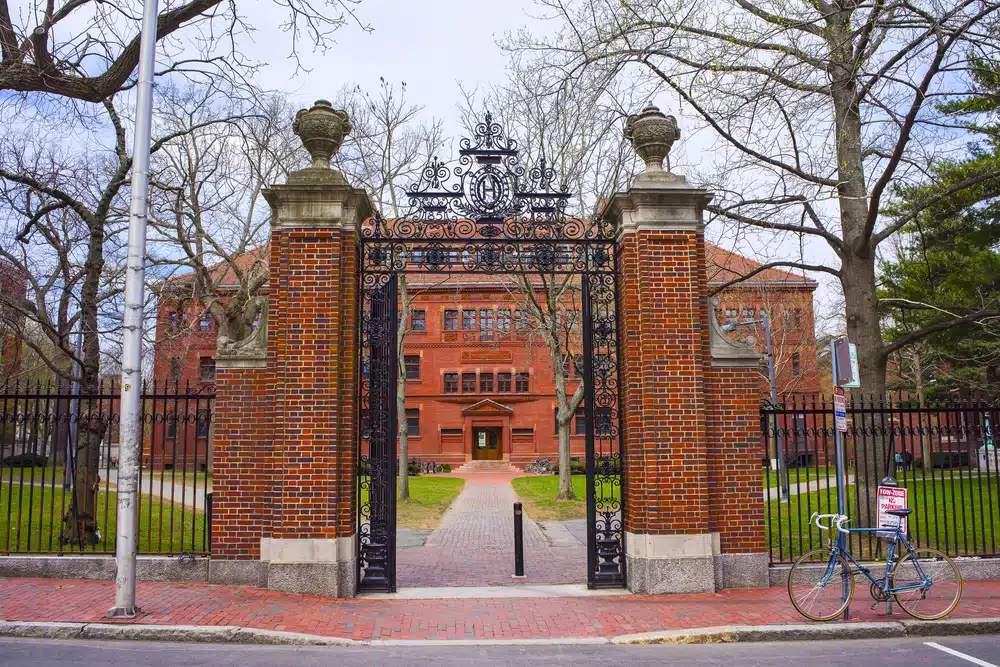Best Classes at Harvard
The phrase “best classes at Harvard” alone ignites curiosity and wonder in any student seeking academic excellence. With its reputation as one of the world’s most prestigious universities, Harvard offers a wide range of intellectually challenging and rewarding courses.
This blog will explore some of the most popular and highly recommended classes that Harvard offers, providing a glimpse into the world-class education that students can expect at this renowned institution.
How do these classes prepare students for their careers?
At the heart of Harvard’s renowned educational system is a profound commitment to equipping students with the tools they need to thrive in the professional world. Beyond just academic rigor and intellectual growth, the courses at Harvard aim to prepare students for real-world challenges in their respective careers.
Their holistic curriculum is meticulously crafted to bridge the gap between theoretical knowledge and practical application.
Whether you’re setting your sights on a pioneering role in a global tech enterprise, envisioning yourself at the forefront of groundbreaking research in biotechnology, or nurturing aspirations of shaping the world as an influential leader in public policy, Harvard’s classes extend far beyond traditional textbook learning.
Take, for example, courses like MLD 340 – Power and Influence. While a cursory glance might suggest it primarily delves into the theoretical constructs of power dynamics, a deeper dive reveals its comprehensive nature.
Here, students are immersed in real-world scenarios where they hone practical negotiation tactics, leadership methodologies, and strategic thinking.
They engage in case studies, group discussions, and simulations, ensuring that they emerge not just with theoretical understanding but with actionable skills that they can carry into boardrooms, negotiation tables, and leadership roles.
Similarly, courses like HISTSCI 136 – History of Biotechnology provide more than a linear account of biotech innovations over the years. They push students to critically examine the socio-political implications, ethical considerations, and economic impacts of these advancements.
By fostering a culture of inquiry and analysis, students are trained to approach challenges with a multidimensional perspective, considering not only the scientific aspects but the broader ramifications on society, ethics, and global economies.
In essence, Harvard’s pedagogical approach ensures that classes are not just informational but transformational. They are meticulously designed to offer a holistic view of subjects, ensuring that students not only accumulate a wealth of knowledge but also cultivate the acumen, skills, and insights needed to effectively harness and apply this knowledge in their burgeoning careers.
Through this comprehensive education, Harvard instills in its students a sense of purpose, direction, and the capability to make meaningful contributions in their respective fields.
What are the best classes to take at Harvard?
What are some of the most beneficial courses that Harvard has to offer? The mission of Harvard University is to develop leaders in a variety of fields who can make a positive impact on a worldwide scale.
This commitment includes focusing on academic excellence in teaching, learning, and research. This university, which is a member of the Ivy League, is home to some of the most thought-provoking and cutting-edge programs available anywhere.
Here are ten of the most interesting classes offered at Harvard that you should consider taking.
SCILIVSY 12 – Understanding Darwinism
The concepts of Charles Darwin and their influence on several fields of study and society will be the focus of this multidisciplinary course. It connects the background of Darwin’s concepts with the fundamental aspects of contemporary evolutionary biology.
In this class, students will review the history of the major components that make up the evolutionary theory. They will focus on the areas in which Darwin’s ideas have proven to be amazingly sound and the places in which subsequent discoveries have drastically altered the theory.
As one of the best classes at Harvard, this course emphasizes the dynamic interplay between scientific inquiry and societal concerns by exploring the historical backdrop of the development of evolutionary philosophy after Darwin’s time.
HISTSCI 136 – History of Biotechnology
When scientists can physically alter and transform biological things through technology, what happens to life? Students will study the historical development of biotechnology in the 20th and 21st centuries as part of this class.
They will pay particular attention to how efforts to create life are rooted in social, cultural, and political contexts.
Some topics discussed in this class are reproductive technologies, genetic engineering and cloning, genetically modified foods, genomics, stem cells, intellectual property, biosafety, and biosecurity.
In addition, the course is structured around five interrelated but distinct areas, each of which allows students to investigate a different aspect of biotechnology’s influence on society, law, and ethics.
THI 101A – Introductory Thai I
By the end of the first year, students can read and produce simple, standard text and engage in basic conversation if they take this class since it presents the fundamental grammatical structures of contemporary Thai.
When teaching Thai, it is important to consider the cultural milieu in which this language is used, both orally and in writing.
HAA 11 – Landmarks of World Architecture
The most significant pieces of architecture from around the world are dissected in this class, along with the aesthetic, cultural, and historical questions each raises.
The lecturers will each present a talk on an outstanding example from their respective fields of study, drawing from various periods and cultures, including modern and contemporary Europe and the United States, early modern Japan, Mughal India, Renaissance and medieval Europe, and ancient Rome.
The sections will develop according to a central theme and focus on key problems that arise in the interpretation and analysis of architecture.
ESPP 90S – The Technology, Economics, and Public Policy of Renewable Energy
There is a slim chance that this paradigm will ever shift, even though energy is the engine that drives economic activity. Yet, there are only a finite number of conveniently accessible fossil fuels left in the world, and continuing to rely on fossil fuels comes at a high cost in terms of the climate.
As one of the best classes at Harvard, this one investigates both the long-term and short-term prospects for renewable energy sources. The first step in the learning process for students will be to grasp the technology behind hydro, solar, wind, and biomass.
FOLKMYTH 128 – Fairy Tale, Myth, and Fantasy Literature
This class follows the journey of traditional stories as they make their way from communal storytelling circles into the literary culture of childhood and onto new media.
It explores the potency of cultural myths like innocence and seduction, monstrosity and alterity, or hospitality and hostility, retold in the style of a fairy tale.
Students will also understand how children can use fantasy worlds, including utopian and dystopian settings, as entryways into exploring counterfactuals and worst-case scenarios.
ASTRO E-8 – Cosmic Evolution: The Origins of Matter and Life
This large survey course combines the fundamental aspects of biochemistry and astrophysics to generate an interdisciplinary synthesis known as “cosmic evolution.”
The course is primarily designed for students who are not majoring in science. From a scientific perspective, it examines some of the time-honored philosophical concerns, such as who we are, where we came from, and how we fit into the grand scheme of things in the universe.
The fundamental goal of the course is to seek unification across all of the natural sciences while gaining an appreciation for the beginning of the universe, including the origin of matter and the origin of life.
LING 105 – Sounds of Language
How do the sounds of different languages around the world fit together to form words and sentences, and what are those sounds? Why is it challenging to hear or make certain sounds? Is there something that could be called a “universal inventory” of sounds?
As one of the best classes at Harvard, this course gives students the skills to study the sounds of different languages in an organized manner and introduces them to the sounds of languages from around the world. In addition to that, they will investigate the apparatus used to transmit thoughts from one brain to another.
MLD 340 – Power and Influence
Students who are determined to achieve their goals despite the challenges that may be placed in their path are encouraged to enroll in the Power and Influence class.
The students’ latent ideas and sentiments around power and influence will presumably be brought to light throughout the course. These factors profoundly influence people’s perceptions of challenges and opportunities and how they choose to address those perceptions and chances.
Students will benefit from developing a more grounded perspective due to this activity. Students will begin their journey toward self-awareness and the testing of their preconceived notions of power and influence on the very first day.
PSY 15 – Social Psychology
This course introduces social psychological research and theory about everyday behavior. The course material will incorporate methods from the life sciences, such as neuroscience, genetics, and evolutionary biology.
The following are some of the topics that are covered in this course: attitudes and social influence, obedience to authority, stereotyping, prejudice, intergroup connections, emotion, interpersonal attraction, morality, prosocial behavior, and errors of everyday human judgment.
Are classes at Harvard hard?
The prestige of Harvard University often prompts the question: “Are the courses at Harvard difficult?” The simple answer is yes, but the reasons behind the difficulty are multifaceted and rooted in Harvard’s dedication to nurturing excellence.
Setting the Benchmark for Excellence
Harvard University’s reputation is not just built on its historic legacy, but also on its academic rigor and high standards. It’s not surprising, therefore, that classes at Harvard are perceived as challenging and demanding.
The curriculum is meticulously crafted to ensure that students don’t just learn but deeply understand and engage with the subject matter.
Profile of a Typical Harvard Student
Students who secure admission into Harvard are typically the crème de la crème of high school graduates globally. They are high-achieving, intensely motivated, and have a proven track record of academic success.
With such a gathering of brilliant minds, the coursework is tailored to push them beyond their limits, fostering an environment that thrives on intellectual growth and groundbreaking ideas.
The Pedagogy Behind the Courses
Harvard boasts a faculty comprising world-class professors – luminaries who are often leaders in their respective fields.
Their teaching methodology, combined with a curriculum designed to provide a deep and immersive understanding of subjects, ensures that students receive an education that is both intellectually stimulating and academically rigorous.
A Deeper Dive into the Academic Workload
The rigorous academic environment at Harvard translates into an intense workload. Students frequently juggle extensive reading lists, challenging problem sets, research papers, and group projects.
The expectation isn’t just to complete assignments but to excel in them. Harvard employs a strict grading curve, which, while ensuring fairness, can also be a significant source of stress for many.
A Network of Support
Recognizing the challenges its courses pose, Harvard ensures that its students aren’t left to fend for themselves. The university offers a plethora of resources: state-of-the-art research facilities for those keen on delving deeper into their subjects, academic advising for course selection and career guidance, and peer tutoring to help students navigate particularly challenging subjects.
Additionally, the strong Harvard alumni network provides mentoring opportunities and can pave the way for exceptional career prospects post-graduation.
The Silver Lining
While the academic pressure at Harvard is undeniable, most students, in retrospect, view their time there as transformative. The challenges, while daunting at times, push students to discover their true potential.
The thrill of overcoming academic hurdles, understanding complex concepts, and succeeding in such a competitive environment is incredibly empowering. The resilience, critical thinking skills, and depth of knowledge gained through a Harvard education are unparalleled, equipping students to excel in any path they choose in life.
In conclusion, while the road to academic success at Harvard is undoubtedly steeped in challenges, it’s these very challenges that shape the unique, enriching, and esteemed Harvard educational experience.
What is Harvard known for academically?
What is Harvard known for academically? The academics are the foundation upon which all of Harvard’s accomplishments and accolades are built. Even though Harvard’s many programs are top-notch, a select few truly shine even amid such illustrious competition.
The Harvard School of Divinity is often regarded as the most prestigious institution for theological education anywhere in the world. This accolade stems from the institution’s roots as a seminary.
The divinity degree program at this university enables students to contextualize their own academic pursuits within the framework of a variety of religious traditions by combining academic study with actual religious practice.
The Harvard Medical School is widely regarded as the most prestigious academic institution in the United States that is not affiliated with the humanities.
These programs include internal medicine, pediatrics, and anesthesiology.
It is evident that this world-renowned institution offers an exceptional academic experience. The courses and programs at Harvard cater to a diverse range of interests and aspirations, and the academic rigor at the university is what sets it apart as one of the most respected institutions in the world.
Attending Harvard allows students to learn from leading professors, work with groundbreaking researchers, and connect with a vast network of alumni and professionals. The skills and knowledge gained through a Harvard education can prepare students for success and contribute to a meaningful and fulfilling life.
If you are considering attending Harvard University and exploring its exceptional classes, booking an initial consultation with AdmissionSight is a smart step.
Our admissions experts can guide you in selecting the best Harvard classes and creating an academic plan that aligns with your interests and goals.
Don’t hesitate to book your initial consultation today and take the first step towards achieving your dreams!









































